Go greener to grow food: Agri-stakeholders want greater access to funding, education
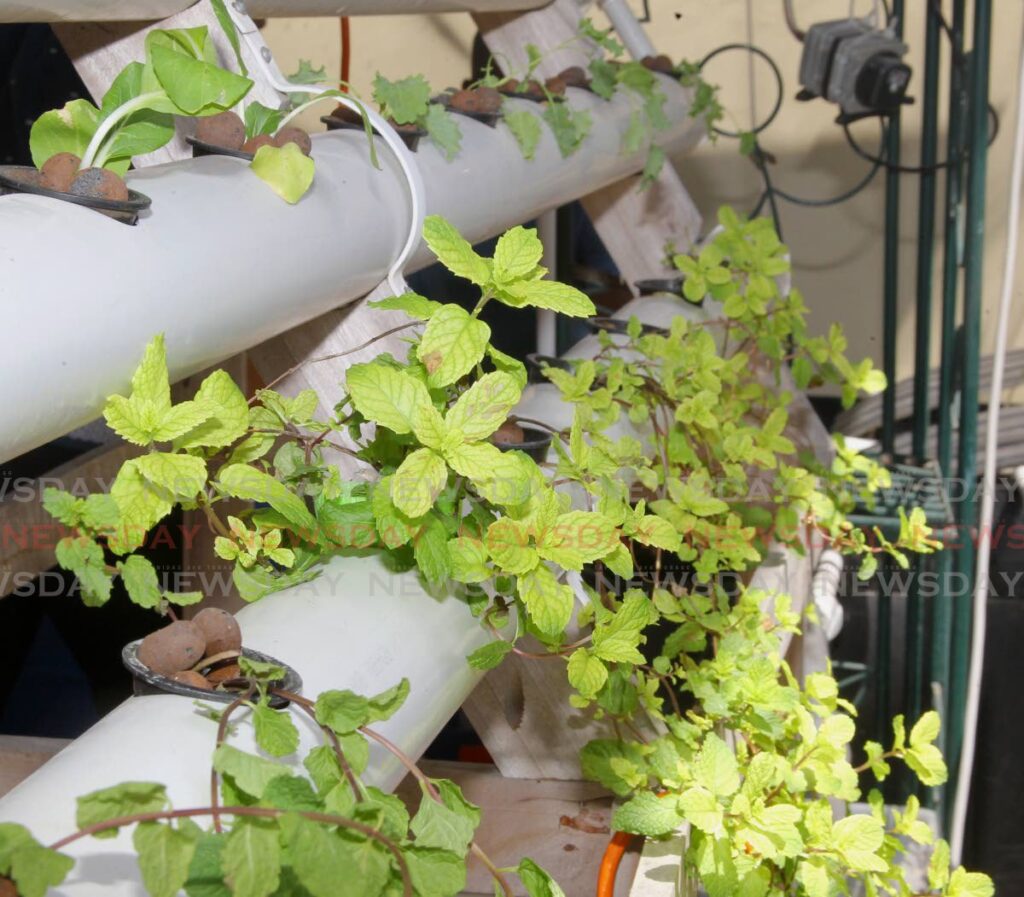
Farmers and agricultural suppliers believe Trinidad and Tobago is well poised to make the necessary changes to shift to greener production of agriculture while ensuring food security, despite being faced with knock-on effects from climate change and a pandemic.
Owner of and trainer at Conscious Agricultural Sourcing Agency (Casa) Vinda Dass said his family moved away from traditional farming techniques because of the losses incurred by flooding, other natural mishaps and praedial larceny.
The business, with locations in St Augustine and Chase Village, Chaguanas provide consultations and technological-based solutions in hydroponic and aquaponic systems, training and support and solar system support to farmers.
Dass said through the Ministry of Agriculture, Land and Fisheries, where he was trained, he was exposed to hydroponics and aquaponics and eventually incorporated greener sources of energy into his farming techniques.
“They (ministry) always have little courses for the public and I got myself involved in aquaponics and took it to the highest level through my own studies thereafter. From there, the natural progression was hydroponics.”
While in the process of learning and making investments to get into hydroponics farming, he realised that there was an unreliable source of energy for the system and opted to invest in solar energy.
“I advise and push anyone who wants to get into hydroponics and aquaponics to get into solar for a reliable source of energy. Also, it safer for the environment and very important.”
Dass said solar energy and new farming techniques were slowly catching the attention of farmers, and a stream of enquiries about it showed a positive step to green sustainability.
“We try to show them the benefits of using solar pumps compared to using gas or diesel. The feedback towards solar in agriculture has been gaining momentum over the last three years,” he said.
He said that the cost of a basic solar set up such as solar panels or solar pumps or a solar security system would depend on the type of the farm and uses of the system.
“It all depends on what the farmer wants to do, really. So, designing the system will depend on the type of equipment that will be used and it has to take into consideration the kilowatts that would be spent. The basic starting price is roughly $17,000 but this varies."
Owner of Mafas Ltd Marcus Mycoo also believes that greener and cleaner agriculture can be attained but said there was an education and information gap between agricultural institutions, technocrats and farmers which has stagnated the sector.
Speaking with Sunday Newsday at his home office in Bay View, La Romaine, he said the challenges facing the agricultural sector and the farmers were not new, just exacerbated over the past few years.
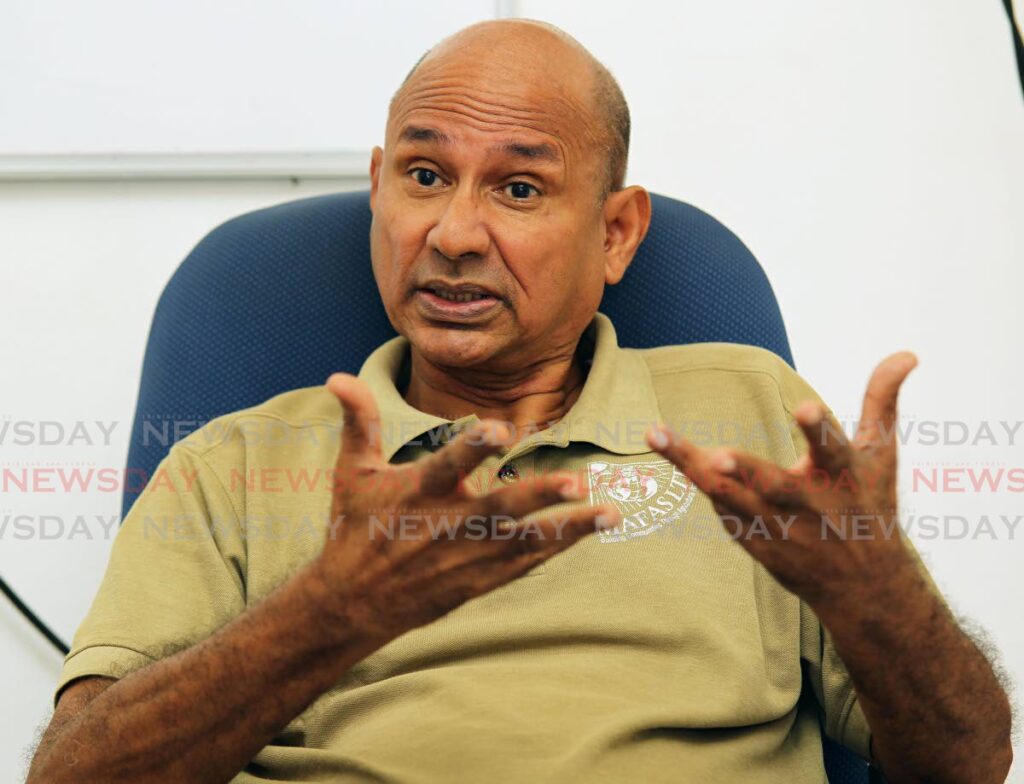
“The climate change story is way beyond relocating farmers. But the normal approach to it is resistant or resilient crop varieties and relocation of farmers which is difficult in a small island state.”
Mycoo, 61, has been working in the sector for almost 34 years and served at several institutions including the Faculty of Food and Agriculture at the UWI, and as a consultant with some local and international organisations.
Mafas was founded in 2006 with the intention of creating clean and sustainable forms of agriculture and bringing together farmers while advancing and promoting new agricultural techniques. Its warehouse is located in Freeport.
Mycoo said the lack of intervention and interest from the major stakeholders has led to a negative perception for the sector.
Root crops, hot peppers, citrus, rice, corn and a variety of vegetables, he said, have great potential to flourish locally and can be for exported regionally and internationally.
As the climate change talks at the UN Congress of Parties (COP 26) concluded on Friday, countries signatory to the Paris Agreement made new commitments and also re-pledged efforts to reduce greenhouse gas emissions. Countries, businesses, investors, universities among other stakeholders have joined alliances to achieve net-zero carbon emissions by 2050, with the key objective to reduce of global temperatures to 1.5 degrees Celsius.
From discussions of mitigation, adaptation, and mobilisation of finance, driving implementation has been identified as a major focus to accelerate delivery.
Focusing his attention locally, Mycoo said the technology existed and the methods for clean farming and sustainability existed but exposing the farmers to it has been a challenge.
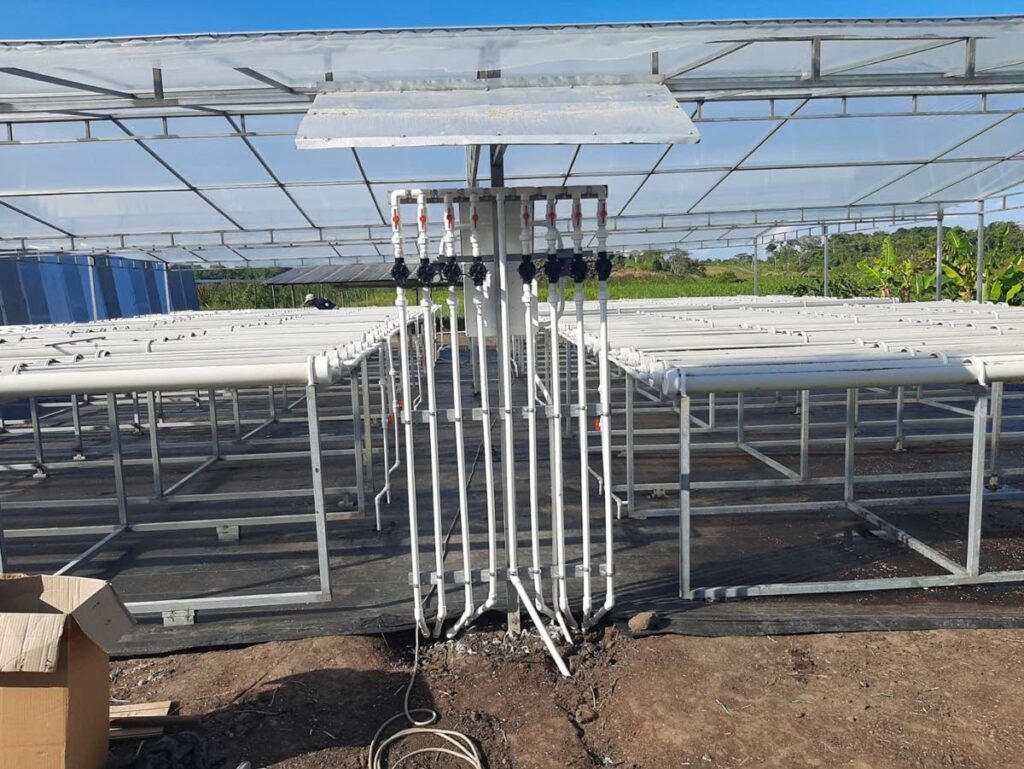
He explained, “There is technology out here and the farmers are becoming aware of it but at a slow pace.
“Understanding the hormonal balance of a crop and how to treat with it when it has a disease, pest, water-logged or even water-deprived was key to saving it. It is not rocket science.”
There were several chemicals that were for the most part toxin-free that could be used and referenced micro-nutrients, bio-fertilisers, botanical pesticides, microbial insecticides, fungicides, nematicides and anti-transpirants, he added.
Mycoo said a deterrent to the recent locust infestation in Moruga and Princes Town could have been solved by understanding natural mitigation methods rather than the use of toxins, which were harmful to people and the environment.
“Nature is under pressure and there are ways and techniques to help plants grow and to deal with environmental stress. It is not 100 per cent fool-proof but can improve the current situation. We are not in a helpless place, but we are stuck in a warp.”
“All the support ameliorations to assist such as drainage, road networks and other infrastructure are valid but there is need for a deeper science to impact the sector.”
He said solar energy, hydro energy and other less invasive uses of energy to the environment are needed.
But farmer Lachram Gayah, who has almost 72 acres of pineapples, said the shift towards cleaner and greener forms of agricultural practices has been difficult.
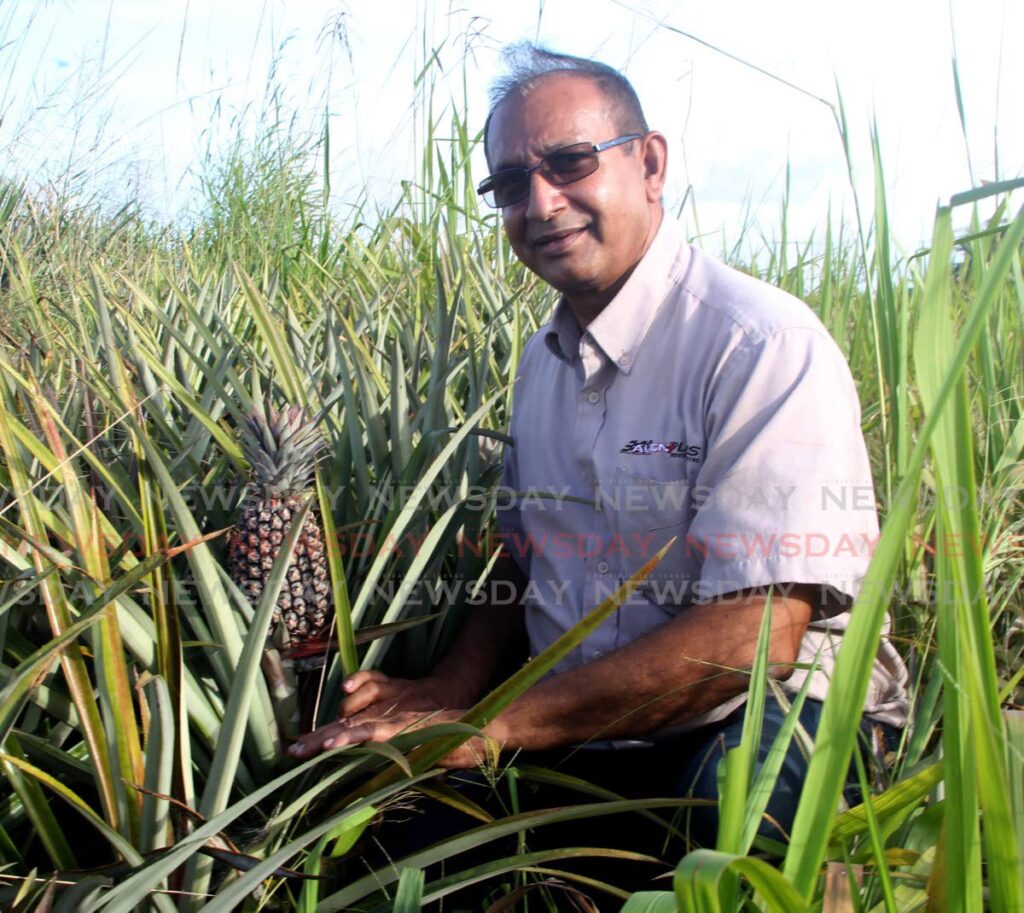
Gayah said that while it was the ideal way to go, funding to source and secure low-carbon machinery was a huge barrier.
“We tried moving to greener forms of production about 10 years ago, but the challenges remained with getting funding for machinery for planting, reaping and processing.
“The cost of labour in TT continues to be high and competing with imported foods would just be unprofitable if we took the alternative route.”
Over the years, Gayah said, there have been efforts by him to incorporate more green farming techniques into his production.
For the most part, he said, the worker preferred to use manual spray cans and mist blowers to tend to crops, which was a move away from carbon emitting machinery, but the use of chemically-laced products countered the intention to be environmentally friendly.
Gayah was hopeful that in years to come, the thrust toward green energy in cultivation and use of non-carbon emitting machinery would become a norm and would not weigh heavily on the pockets of farmers.
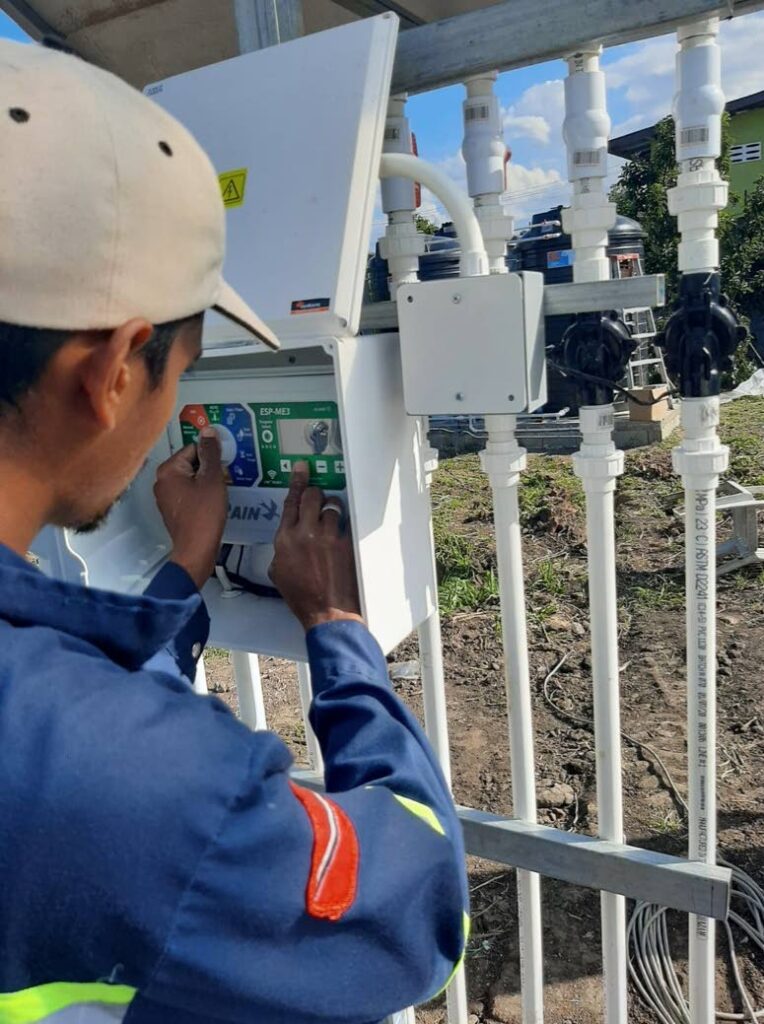
The stakeholders all agreed that more investments in agriculture were needed, especially changes in polices to promote a sustainable and efficient sector.
A report titled – Improving the monitoring system for climate change impacts on the agriculture sector in TT – by the Ministry of Planning and Development in 2019 to the Food and Agriculture Organization said there were several barriers which inhibited realisation of enhanced agricultural production and food security.
These included, “the unavailability of relevant information on the impacts of climate change on specific commodities in areas under agricultural production in a format that can be utilised for decision-making and planning; little or no documentation and sharing on climate resilient practises in the sector; and limited skills and knowledge of key stakeholders in the sector to use the data available to plan for the impacts of climate change.”
The report also noted that the major pollutant was CH4 (methane), which was derived from enteric fermentation in domestic livestock, and COx (exhaust gases) from the burning of agricultural residue.
The Ministry of Agriculture, Land and Fisheries has over the years embarked on projects to discuss issues related to improving domestic fresh produce marketing and last year pumped a US$260,000 or TT$1.7 million grant from the Green Climate Fund to projects which monitor and assess the effect of climate change on the local agricultural sector.

Comments
"Go greener to grow food: Agri-stakeholders want greater access to funding, education"